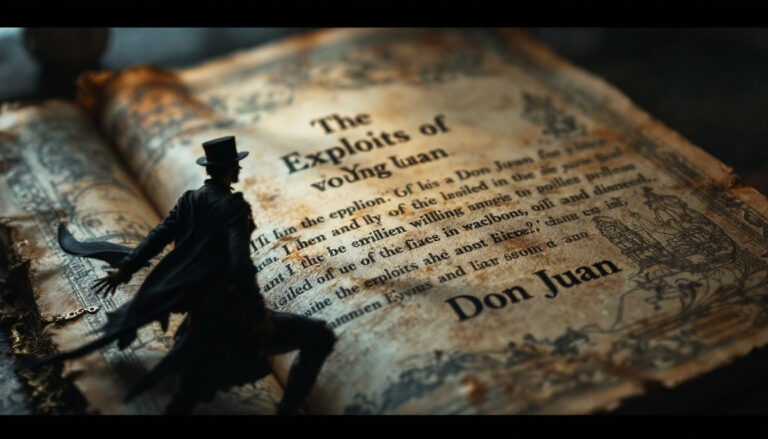A Woman of No Importance by S. Purnell – Story of Courage & Espionage
Virginia Hall wasn’t just an American spy; she was a legend. Sonia Purnell’s A Woman of No Importance brings Hall’s story to life, capturing her unmatched bravery during World War II. Despite losing a leg, Hall outsmarted Nazis, led resistance networks in France, and became one of the most feared Allied spies. This gripping biography sheds light on her determination and the vital role women played in shaping history.
About the Author: Sonia Purnell
Sonia Purnell has made a name for herself as an acclaimed biographer and journalist. Her ability to uncover untold stories and craft them into compelling narratives has earned her a loyal following. Whether she’s detailing the life of a political figure or a covert spy, her dedication to accuracy and storytelling shines through.
Purnell’s Previous Works
Before A Woman of No Importance, Purnell had already demonstrated her knack for writing riveting biographies. One of her most notable books is Clementine: The Life of Mrs. Winston Churchill, a biography that explores the life of Winston Churchill’s wife, a woman who played a critical role behind the scenes during one of history’s most tumultuous periods. This work was short-listed for several awards, including the Plutarch Award.
Another key addition to her repertoire is Just Boris: A Tale of Blond Ambition, which delves into the life and career of Boris Johnson, offering readers a balanced yet insightful perspective on his political journey. Each of these works underlines her expertise in capturing the complexities of prominent figures.
Learn more about her bibliography on her official website or browse her books on Amazon.
Research and Writing Style
Purnell’s biographies stand out for their vivid detail and cinematic storytelling. She meticulously pieces together facts from diverse sources, often including previously overlooked or unpublished materials. Her attention to detail ensures that the lives of her subjects feel authentic and fully realized.
What truly sets her apart is her commitment to suspense and pacing. For instance, in A Woman of No Importance, Purnell weaves in thrilling moments that read like a spy novel. You can feel her journalist roots in the precision of her prose, balanced by a novelist’s ear for drama.
Purnell described her process in an interview. She often spends years researching and writing, diving deep into archives and conducting interviews to enrich her narratives. Her dedication is evident on every page, leaving readers not just informed but deeply engrossed.
The Extraordinary Life of Virginia Hall
Virginia Hall’s story is one of resilience and bravery in the face of impossible odds. Known as the “Limping Lady,” Hall became one of World War II’s most formidable spies. Her journey from Baltimore to the heart of Nazi-occupied France is a testament to courage, determination, and resourcefulness.
Early Life and Challenges
Virginia Hall was born on April 6, 1906, in Baltimore, Maryland. As the daughter of a wealthy family, she grew up with access to an excellent education, attending Radcliffe College and later Barnard. Hall had a love for languages and dreamed of a career in diplomacy. However, early opportunities to join the U.S. Foreign Service were hindered by societal discrimination against women.
Her life took an irreversible turn in 1933 when a hunting accident resulted in the amputation of her left leg below the knee. For someone with diplomatic ambitions, this was another layer of adversity. But Hall adapted, wearing a wooden prosthetic leg she referred to as “Cuthbert.” Instead of letting the injury define her, she used her unwavering resolve to pursue other avenues for impact.
Learn more about Hall’s early life and struggles from Home of Heroes.
Path to Espionage
Hall’s entrance into espionage is a story of grit and ambition. Initially working administrative roles, she sought avenues to contribute to the war effort. She left her desk job in February 1941 when she was recruited by the British Special Operations Executive (SOE). Despite the severe gender biases of the time, SOE recognized her talent and determination.
Her unique courage caught the attention of SOE as World War II intensified. Hall knew the risks but was determined to make a difference. Sent to France under the guise of a journalist, she proved more than capable of handling the dangers of spy work. Hall’s journey marked her as a trailblazer in a time when physical and social challenges often sidelined women.
Explore more about her SOE recruitment process and contributions on Spyscape.
Defining Missions in France
Once on French soil, Virginia Hall became invaluable to the Allied cause. Her work ranged from organizing local resistance groups to establishing safehouses and leading daring rescues. She spent over a year building an underground network that the Nazis struggled to dismantle.
During one mission, Hall orchestrated the escape of fellow agents and civilians from German-controlled areas. Her ability to think quickly and adapt to dangerous situations earned her the trust of local resistance leaders and the unrelenting ire of the Gestapo, who dubbed her “the most dangerous Allied spy.” Despite constant threats, Hall returned to the field repeatedly, even conducting missions after the Gestapo distributed posters offering a reward for her capture.
Hall’s fearless ingenuity during these missions is vividly detailed on the National Archives.
Virginia Hall’s unparalleled work in France wasn’t just heroic—it shifted the trajectory of the war. Stay tuned as we explore the lasting impact of her legacy in the following sections.
World War II Context and Hall’s Impact
During World War II, the tides of battle didn’t only play out on open fields or in the streets of occupied cities. Beneath the surface, a critical and covert fight was unfolding. Intelligence agencies, resistance movements, and individuals like Virginia Hall spearheaded efforts that shifted the course of history. Examining her story in the context of the larger efforts—like the collaboration between Allied intelligence, the French Resistance, and Hall’s own inspiring contributions—sheds light on a hidden yet crucial part of the war.
SOE and OSS Collaboration
The union between the British Special Operations Executive (SOE) and the American Office of Strategic Services (OSS) marked a pivotal alliance in World War II. Both organizations aimed to disrupt enemy operations, support underground resistance networks, and gather crucial intelligence.
The SOE, founded in 1940, specialized in guerrilla warfare and sabotage. Dubbed “Churchill’s Ministry of Ungentlemanly Warfare,” it trained agents in unconventional tactics that sowed chaos behind enemy lines. On the other hand, the OSS, established in 1942, became America’s first centralized intelligence agency, providing critical information to the Allies.
Their partnership allowed for smoother coordination of espionage missions. Agents shared resources, intelligence, and training strategies. Virginia Hall, operating as an SOE agent but later working alongside OSS officers, exemplified this collaboration. Her expertise bridged the gap between British and American approaches, showcasing how integral this cooperation was to Allied victories. Learn more about the SOE and OSS.
The French Resistance
Operating within Nazi-occupied France posed immense challenges for resistance workers. Surveillance was relentless, punishments were severe, and resources were scarce. Yet, the French Resistance remained unyielding, demonstrating unmatched courage and ingenuity.
Resistance groups carried out a variety of activities, from sabotaging railway lines to disseminating anti-Nazi propaganda. These actions played a direct role in disrupting German logistics, delaying reinforcements, and ultimately assisting Allied landings during D-Day. However, internal divisions and the ever-present threat of betrayal made their work incredibly dangerous.
Virginia Hall excelled in this environment. She united fragmented resistance cells, providing them with supplies and strategies while evading capture. The Gestapo considered her a high-value target, calling her “the most dangerous Allied spy.” Her presence gave resilience to the movement, proving that one individual’s resolve could turn the tide of history. Explore the history of the French Resistance.
Hall’s Leadership and Legacy
Virginia Hall was far more than a participant in wartime espionage; she was a leader who redefined expectations. Her ability to adapt to adversity, whether physical or situational, illustrated a unique determination that earned her a lasting place in intelligence history.
While leading missions under intense scrutiny, Hall inspired trust and confidence. She recruited agents from diverse backgrounds, established crucial escape routes, and facilitated the safe transfer of intelligence back to Allied command. Her wooden leg, dubbed “Cuthbert,” became a symbol of her resilience—a reminder that no limitation could stand in the way of her commitment.
After the war, Hall was awarded the Distinguished Service Cross, the only civilian woman to receive this honor. Her legacy continued into the Cold War, where she joined the CIA, further cementing her place as a trailblazer in intelligence work. Read more about Virginia Hall’s legacy.
Photo by Hub JACQU.
Critical Acclaim for the Book
Sonia Purnell’s A Woman of No Importance has garnered widespread recognition for its stunning portrayal of Virginia Hall’s life. Critics and readers alike have praised its attention to detail and the relevance of Hall’s story in today’s world.
Praise for Research and Detail
One of the standout aspects of A Woman of No Importance is the meticulous research and vivid storytelling. Sonia Purnell uses an impressive range of sources to recreate Virginia Hall’s life with accuracy and depth. Readers commend the way Purnell uncovers long-forgotten details, painting a complete picture of Hall’s daring missions and personal challenges.
What truly sets this book apart is its ability to balance historical accuracy with compelling narrative. It reads like a spy thriller while staying firmly grounded in fact. Critics like the New York Times have celebrated how the book shines a much-deserved spotlight on Hall’s contributions to history. Meanwhile, reviews from platforms like Goodreads highlight the engaging and accessible nature of Purnell’s work, making it relatable to both casual readers and history buffs.
Through thoughtful prose, the author brings Hall’s story to life, making her bravery and resourcefulness practically leap off the page. The level of care put into this biography has earned praise from seasoned critics and everyday readers alike—a rarity in historical non-fiction.
Impact of Hall’s Story Today
Virginia Hall’s legacy has a striking relevance in modern times. Her story is a reminder of the power of resilience and courage in the face of adversity. Hall’s relentless determination to fight back, even when the odds were stacked against her, resonates deeply with contemporary audiences.
In a world still grappling with issues of equality and representation, Hall’s life serves as a timeless example of what women can achieve when given the opportunity—and when they create their own. Her story inspires individuals in every field, from intelligence work to activism. The significance of Hall’s contributions has even been explored by outlets like NPR, which emphasizes her overlooked heroism and enduring influence.
Moreover, her bravery isn’t just historical; it has set a precedent. As detailed in the CIA’s exhibit, many of Hall’s clandestine methods have been foundational in modern espionage practices. This connection between Hall’s achievements and their lasting impact is a testament to her foresight and ingenuity.
Hall’s story is not just a nod to the past—it’s a call to action for the future. By celebrating her life, readers are encouraged to embody the same tenacity, adaptability, and fearlessness in their own journeys.
Key Takeaways from the Book
Sonia Purnell’s A Woman of No Importance isn’t just a biography; it’s a masterclass on redefining courage, intelligence, and persistence. The book dives into Virginia Hall’s extraordinary life, highlighting her role as both a groundbreaking spy and a trailblazer for women everywhere. Below, we explore two major themes that stand out from her story.
Redefining Heroism: How Hall Challenges Traditional Ideas of Heroism with Her Bravery and Intelligence
When it comes to traditional portrayals of heroism, physical strength and valor often take the spotlight. A Woman of No Importance flips this script, showing that heroism can look remarkably different. Virginia Hall, despite the loss of her left leg, overcame not just physical challenges but deeply ingrained societal barriers to emerge as one of the most effective agents in World War II.
Hall’s actions under constant threat pushed the boundaries of courage. Whether leading sprawling resistance networks across France or escaping Nazi pursuit with resourcefulness, her story redefines what it means to be a “hero.” She used keen intellect and rapid decision-making to outsmart enemies rather than outmuscle them. In one mission, for instance, she orchestrated entire escape networks despite being hunted by the Gestapo, earning her the chilling moniker, “the most dangerous Allied spy” (read this NPR article for more).
Virginia Hall’s heroism wasn’t built on adrenaline-fueled shootouts but on calculated risks, patience, and an unwavering commitment to her purpose. In this, Purnell crafts a narrative reminding us that heroism is more about character than circumstance.
Breaking Barriers for Women: How Hall’s Achievements Reflect Broader Societal Changes Regarding Women in Leadership
Virginia Hall’s life isn’t just a tale of one woman overcoming obstacles—it’s a thread in the fabric of a larger societal shift. In a time when women were mostly relegated to supportive roles, Hall carved out a space for leadership in one of the most dangerous fields: espionage.
She shattered gender norms by not only participating in clandestine operations but leading them. Embedded deep within occupied France, Hall built and managed resistance networks while navigating both enemy scrutiny and systemic sexism. Organizations continued to overlook women’s potential, but Hall’s achievements sent shockwaves that demanded recognition. Her life laid groundwork for rethinking women’s roles in leadership and intelligence efforts (learn more from Sonia Purnell’s reflections here).
Her barriers weren’t limited to gender. As someone with a disability, she lived in defiance of the era’s narrow perception of capability. By excelling in physical and intellectual feats, she paved the way for other women to challenge stereotypes about what leaders can or should look like. Her story doesn’t just inspire—it redefines possibilities for women navigating tough environments today.
Virginia Hall’s life captured by Purnell is more than inspiring—it’s a wake-up call to redefine leadership and success. For anyone seeking a blueprint of courage and creativity in action, this book delivers.
Conclusion
Sonia Purnell’s A Woman of No Importance does more than recount the daring escapades of Virginia Hall—it reclaims her rightful place in history. This biography honors Hall’s defiance of physical, societal, and institutional barriers, showcasing her as an enduring symbol of courage and ingenuity.
Her story is a testament to the power of determination, and it continues to inspire leaders and change-makers across the globe. If you haven’t yet, pick up this book to uncover the unshakable resolve of one woman who helped shape the world.
How will you let Virginia Hall’s example influence your view of resilience and ambition?







